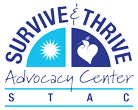There are so many ways that the business sector can support survivors of sex and labor trafficking, starting with being informed about how to recognize and respond to suspected human trafficking in your workplace. Visit STACPRO.org to learn more. Businesses can also support organizations like STAC that help survivors over the long and short terms, they can provide vocational training opportunities to survivors, and they can offer safe and quality long-term jobs that ensure economic stability and financial well-being.
“The coronavirus pandemic has exacerbated the plight of many people around the world who were already living and working in slavery-like conditions and has made many more susceptible to such exploitation. For companies with extensive operations and supply chains, the risk of human trafficking taking place within their value chain is on the rise, an issue the Global Business Coalition Against Human Trafficking (GBCAT) and many other anti-trafficking initiatives have elevated to the business community throughout the year. In response, many organizations are partnering with the private sector to help prevent, identify, mitigate, and address human trafficking in business operations and supply chains around the world.
However, companies have an additional, powerful lever they can further deploy to aid survivors of human trafficking in their recovery: employment. As employers, companies are uniquely positioned to offer quality training and stable incomes. Vocational training and good jobs enable survivors to better build the skills and resources they need to achieve financial security and long-term safety. Doing so also helps survivors to overcome socioeconomic vulnerabilities, reducing the likelihood that they or their dependents will be exploited in the future.”




